- Home
- Anne Spackman
Star Gods: Book Four of Seeds of a Fallen Empire Page 14
Star Gods: Book Four of Seeds of a Fallen Empire Read online
Page 14
Were they helping to fight disease or merely a by-product of disease–or was their presence responsible for immune system deficiencies?
No one knew. Much remained unknown regarding Seynorynaelian biosystems, even to biochemists. It was a fact that Seynorynaelian bio-chemistry was more complex than any other humanoid species; Seynorynaelians were still trying to unravel the mysteries of their own DNA, even while they reached their collective arms around the Great Cluster itself.
With so much unknown about Seynorynaelian cellular structure as well as thousands of other species the explorers had encountered, Gerryls could see how the differences in the humanoid systems could be construed as independent evolution of races, how any one could believe that life had just evolved on its own in many different environments. But then, nothing explained the mass convergence of form.
Why were there so many humanoid races? Why would nature have chosen that form again and again? Gerryls could not imagine that nature had done anything of the kind.
And studying the chemical structure of all humanoids, Gerryls saw that the tri-nucleated cells and lyrachloroplasts were the youngest innovations in Seynorynaelian bio-chemistry, that once their race had relied more upon oxygen and not used carbon dioxide and light energy at all. The sequence of evolutionary adaptations that he calculated had been recent; this once again pointed to a first race that had diverged and been altered after millions of years of genetic isolation. A first race that had been called the “Comet Riders” on Seynorynael, from a mythical place some believed was called Enor.
One more thing disturbed Gerryls; he could see by Alessia’s face that the same thing was bothering her.
I know, he thought, wearing a frustrated smile.
Hinev’s idea of a first race was the only reasonable explanation, but there were a few major problems with his idea. There hadn’t been enough time yet for all of the races to have developed into their present state if they had been related to each other less than a million years ago, or even a few million years ago.
There was also no evidence to suggest that a single race could have evolved millions of years before the others, that is, advanced fast enough to accomplish feats of space travel that had taken it across the galaxies in order to form these lost colonies. For if this race had achieved space travel so long ago, why had it lost contact with its colonies, left them in a dark age, left its own people to evolve into so many races?
If it had existed, the first race itself had since vanished.
Nevertheless, despite all of the complications surrounding the mysterious origins of humanity, in his heart Gerryls himself believed–he felt that the first race had existed.
And it had somehow spread itself across the stars!
* * * * *
"I tell you, Kiel, I'd rather be paired up with Lierva than Alessia," Mindra said, her arms folded across her chest. “I do not like that woman. I will not go anywhere with her.” The team was preparing to depart for Yurvec5 for a mission of open contact. Alessia had been passing by Kiel's planning office and stopped when she heard Mindra mentioning her name.
“I saw her, Kiel, disobeying your orders.”
“What orders?” Kiel asked, with a barely perceptible sigh. Had it ever occurred to Mindra that someone might not want to go with her, either?
“The orders not to use any violence against an indigenous population, of course! The upetywricons–”
“Oh, that again,” Kiel interrupted. “Yes, Celekar explained everything. They did riddle her with laser fire, Mindra. She was alone and surrounded. I’m not certain even I would have been able to negotiate my way out of that one. So tell me, what would you have done?”
“Don’t tell me you’re condoning what she did.”
“No, I’m not.”
“Kiel!”
“I know, discipline, discipline. I’m well aware of what she did. She broke an order, and she paid for it dearly, so can we put an end to the issue? After all, the upetywricon agents did murder their own ambassador, a defenseless old man who just wanted to talk to us. And they did ambush Alessia as our emissary, as our representative. I can’t say they didn’t get what they deserved.”
“Then you try being around her when she decides to do something unpredictable, something recklessly emotional, and see how easy it is cleaning up the mess.” Mindra continued. “And what about the mission on the planet Karrika? She flew away ahead of the group as if she wanted to find the population center all by herself!"
“It sounds to me like you’re looking for an excuse to dislike her, because you already do. Stop being so critical.”
“Kiel—“
“All right, Mindra, I'll pair you with Lierva this time." Kiel sighed. "I'm sure Celekar won't mind at all.” He added, with a trace of sarcasm.
"Thanks,” Mindra said, seeming a bit lost now that her anger had died down. "I have nothing personal against Alessia, Kiel," she added. "But I don't trust someone who keeps to herself. It isn't as though we're all strangers. I still think she has something in her past to hide, and her attitude doesn't convince me it isn't something significant."
"That’s enough, Mindra. You're being overly critical again, and you probably know it. If Alessia’s behavior offends you, come to me with a specific issue or complaint."
“I’ve made all of the attempts to be accommodating that I’m going to. No matter what I say, she never says anything back–it’s like a slap in the face! Don’t deny that you haven't noticed how insensitive and unfeeling she is towards any attempt of friendliness–”
“If that’s really what you’re making,” Kiel said. “An attempt,” he added cryptically.
“What?”
“Quite often you make your judgments before you have all of the facts, Mindra, and not everyone finds your overall attitude encouraging, no matter what you might say at any particular given moment.”
“What do you mean by that?”
Kiel sighed. “For one thing, I’ve noticed that you still treat Alessia like she doesn’t belong here. But Hinev wouldn't have made her an explorer if she wasn't worthy of it. After all, didn’t he also select you?"
Alessia suddenly tore herself away from the conversation and hurried down the corridor until she had reached the quiet peace of the nearest gardens.
She was angry at Mindra's caustic appraisal of her, and trying not to let the humiliation touch her at the same time. Did Kiel share the same opinion? No, that was too awful to contemplate!
Alessia stopped, and almost laughed because there was nothing else that would dispel her feelings. She had just learned a valuable lesson, she thought. To ignore anything that hurt.
She wanted to be angry at Mindra, but she couldn’t find ample enough reasons to condemn her, and that failure alone was a blow to her endeavor.
Alessia threw herself down on the seat panel in thoughtful agitation, then stilled to listen to the hum of the light panels above and the percolating water that suddenly broke into a shower over the plants.
* * * * *
One day, without much forethought as to why she had wandered there, Alessia found herself crossing into the ancient ruined infrastructure, the infrastructure that had been a part of the original ruins incorporated into Selesta.
What was she doing there? she wondered as she gazed about.
She thought she was going to the forest when she left her quarters, and then instead her feet had headed right for the alien engine room. She found herself standing before the dense, metallic sphere that housed Selesta’s heart, the ship’s most powerful generator, the anti-matter containment core itself.
Anti-matter…
When the ship was being rebuilt, Hinev, Kiel and his team had kept the infrastructure, using it as a guideline for the new development of Selesta. However, one "territory" of the ancient ruin had remained entirely intact, a small metallic geometric structure generati
ng its own impervious shield, impossibly hanging suspended in the air, free from the force of the artificially generated gravity on board.
Hinev and Kiel had agreed after several attempts trying to analyze it that the sphere-shaped generator had once created power for the ruined vessel of Lake Firien. Exactly how it had operated and how they might use the device themselves had eluded them. Hinev had been convinced Selesta proved the legends of the Comet Riders he had heard in his youth were more history than myth.
The existence of the ancient ruined ship itself which had turned into Selesta meant two things to Hinev. First, it had proved that their race was not native to Seynorynael; second, it meant that Seynorynaelian technology hadn’t developed as rapidly as people believed. What they learned had been passed down to them by the ancients. Those who had disagreed with him claimed Selesta to have been an alien ship that merely crashed to their planet before recorded time. Seynorynaelian technology had developed on its own.
Hinev believed it had already developed elsewhere.
As Alessia stood before the metallic sphere, she felt the vibrations emanating from the field-contained generator. Every particle of her being reached out to it, urged her to attempt communication with the field. How? How could she? she wondered, then stepped forward with eyes open and tried to pass through the electromagnetic barrier to touch the surface, so tantalizingly close. Yet of course she found she could not cross the field.
Still some power buried deep within her stirred to life, the part of her that seemed to be listening to the call of the anti-matter generator against the will of the rest of her. The first half was winning her over, here in this heart of alien technology. She felt as though she recognized the force calling to her, as if it were and had always been a part of her destiny. And she felt sure it had recognized her.
The longer she stood, gazing at the field, the more her vision retreated as something surreal, something she no longer focused on, despite the fact that vision usually connected her to the outside world. She found herself suddenly looking into a memory that was not her own. Or was it? Hadn’t she seen it before?...
A gleaming city rose high above a luminous green surface, the entire scene haloed by the white sun behind the towers. A shower of light was upon the buildings; it glittered in the tall trees that enveloped the city, a forest of leaves hewn almost out of greenish silver, leaves that gently caressed the artificial beauty of the city.
She closed her eyes, but the city was still there.
Moving in that waking dream she had passed through the barrier, and stood beneath the sphere, her outstretched fingers almost touching the base of it. The frequency of the vibrations grew shorter and more powerful. Every fiber of her being told Alessia what it was that was contained before her–she felt its infinite power draw upon her.
Here was anti-matter indeed, of the most precious and rare kind to be found in the universe.
The sphere held no exotic matter mined from a black hole, nothing any human kind could have found or extracted from the universe to serve the human race.
The anti-matter that fueled Selesta was no less than a small isolated piece of cosmic string, a force of infinite density, a remnant of the ancient universe from the beginning of time when matter froze out and clumped into galaxies upon such cosmic strings, small tears in the fabric of space-time. It was the ultimate singularity, a region around which no known laws of space or time applied.
It had to be infinitely thin, she realized, if it could be contained in such a tiny container and field, but she did not draw too close. The field, she thought, opening her eyes, looking around the engine room. The field she had disrupted had dissipated to a conductive ring around the engine room. As if she had triggered a switch long waiting to be activated, the energy her serum-induced metamorphosis permitted her to see saturated Kiel's artificial tachiyon density engine, merging its functions to the string singularity.
A space-tearing engine! Alessia thought, then breathed deeply. Thus far, the tachiyon particle chamber of Kiel's engine had been the sole means of travel near light speed and into sub-space. With the charged tachiyon particles, it was possible for Selesta to skip over the light speed barrier and into backward time. Charged particles in forward time became their opposites as they moved across the space-time barrier, and all motion that attempted to move faster than light had to accelerate into the past.
Thus the engine took the ship backward and then forward in time to the exact moment when the ship had left real time while the ship continued to move forward in space. Hence scientists of Seynorynael had termed the phenomenon a space "warp" or "jump". The "jump" was in essence instantaneous, and it was possible to travel through great distances without a second of real time passing.
But after the last warp, the explorers had contemplated not using the warp drive at light-speed when some of their mortal specimens were terminated by the forces of the light-speed journey. And if the ship continued to only travel at sub light speed, time would slow on board, and thousands of years would have passed at home before any of them returned, if there was still a home to return to.
But this engine, a space-tearing engine, made of an exotic matter so dense that it created negative pressure, could theoretically force open permanent “centipede” holes in the fabric of space time! It could allow them to travel from one point to another, even across the universe, without having to stop and calculate the many course adjustments that slowed their travel.
And the passage of time would lose its meaning, for in sub-space, all time and space coalesced. If they could figure out how to use the engine and where to emerge from hyperspace, they could begin a million year voyage and return on the same day they had left!
Wait a minute–she paused, extending her senses. They may not have known how to use the cosmic string consciously, how to bend it to their will or make it an instrument of their will, but the cosmic string was already operating for their behalf!
As if affirming her suspicion, the energy of the string formed a density field beyond the electromagnetic and magnetic fields they had created to protect the ship, letting her feel its power. Then the pulse faded to a weak frequency, but she knew that in its power lay the possibility of invisibility. This string could create an anti-gravitational shield that could mask the gravity waves produced by an ordinary accelerating object, an accelerating spaceship–Selesta. If the string provided such a shield, that would mean that–no other ship in the universe would know they were coming until Selesta was upon them!
She knew Kiel and the others would sense that something unexpected had occurred and would locate the source. They would find her in the engine room–and soon.
She stepped away from the string singularity. The ship's main engine had been built beside it. As she looked from one to the other, she realized that they had been built to complement each other. The string had been contained near the tachiyon chamber. The same energy channels could be used by the string to envelop the ship in its density barrier and to channel the beam of negative pressure it created.
Whatever potential it had, learning to control it was another matter.
Thus far the singularity here had been acting on its own.
* * * * *
No one suspected that Alessia had anything to do with the activation of the ancient singularity and string engine sphere left by the original creators of Selesta. Gerryls and Kellar had been the first to arrive.
"Alessia–could you tell what happened?" Kellar asked her as though she had just arrived herself, as if he thought the transformation had occurred spontaneously, and of all the crew, she had merely found her way there first.
In moments the rest of the crew appeared, having rushed from the nearby bridge and crew quarters. Kiel and Kellar fell into a private discussion, while the others looked about the engine room, measuring the surge in energy output and pondering what might have occurred.
"Did you see anything when you got here?" Kiel asked.
Alessia nodded hesitantly. Would they believe that she had been the catalyst–that the memories reaching her had triggered the singularity to expose itself to her? In her own mind she was no longer sure. Perhaps the string might have drawn any of them, and the memories it brought to her mind were merely illusions conjured from her own imagination.
"A surge of energy shot from the sphere in an expanding ring–before it met the tachiyon engine. The tachiyon tube seemed to act as a kind of channel–it looked like the electromagnetic net was being engaged."
"That explains the signals we received on the bridge," Kiel nodded.
"The density envelope?" Gerryls mused. "The singularity would have to be compatible with our engine design for that to be possible. How that might be I can't imagine but–if we can learn to use the string singularity, if we can control its energy and direct it somehow–"
"We may be able to cut our travel time in half." Kellar broke in.
"Can you get on it right away?" Kiel asked Gerryls and Vala.
"Yes. But one thing I'd like to know–when you designed the engine, did you deliberately attempt to accommodate the string?” Vala asked. “How did you know about its potential when you created the tachiyon chamber?"
Kiel looked at them both and shrugged. "I didn't," he said. "No one could get the engine plans to work. We could generate a tachiyon ring large enough to contain her in theory, but the engine would have to be half the size of the ship, and because the crystalloid alloys of the ruins' infrastructure were so strong, the interior skeleton was nearly impossible to alter. And it was clear that this small area had once been the engine room–that it could be possible to create a small engine to carry this great ship.

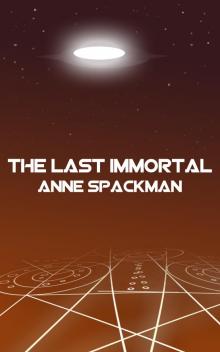 The Last Immortal : Book One of Seeds of a Fallen Empire
The Last Immortal : Book One of Seeds of a Fallen Empire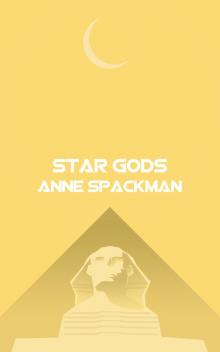 Star Gods: Book Four of Seeds of a Fallen Empire
Star Gods: Book Four of Seeds of a Fallen Empire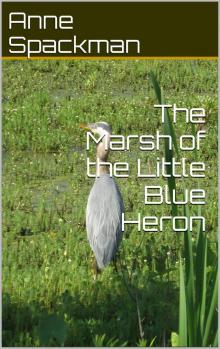 The Marsh of the Little Blue Heron
The Marsh of the Little Blue Heron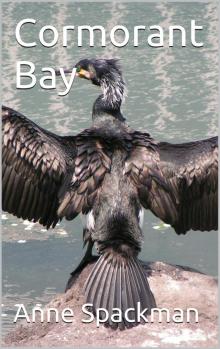 Cormorant Bay
Cormorant Bay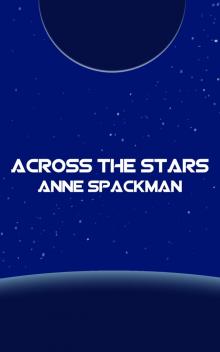 Across the Stars: Book Three of Seeds of a Fallen Empire
Across the Stars: Book Three of Seeds of a Fallen Empire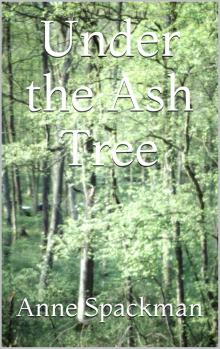 Under the Ash Tree
Under the Ash Tree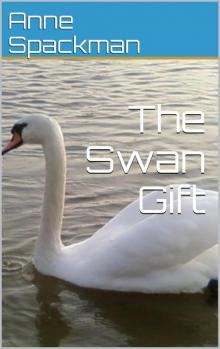 The Swan Gift
The Swan Gift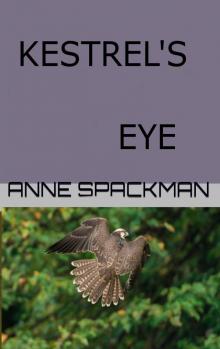 Kestrel's Eye
Kestrel's Eye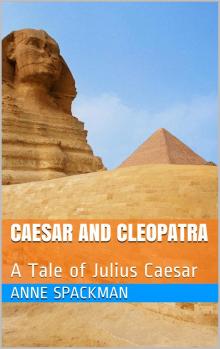 Caesar and Cleopatra: A Tale of Julius Caesar
Caesar and Cleopatra: A Tale of Julius Caesar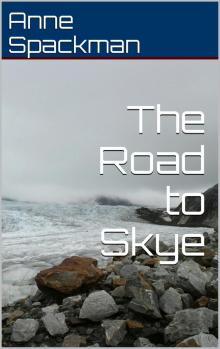 The Road to Skye
The Road to Skye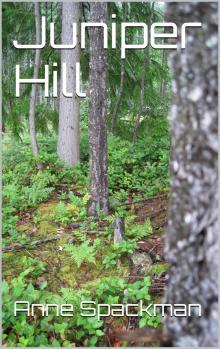 Juniper Hill
Juniper Hill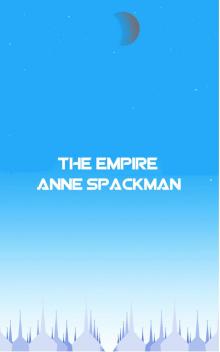 The Empire: Book Six of Seeds of a Fallen Empire
The Empire: Book Six of Seeds of a Fallen Empire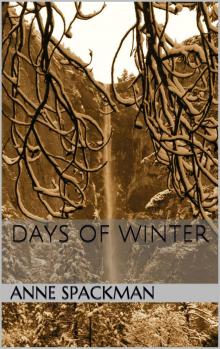 Days of Winter
Days of Winter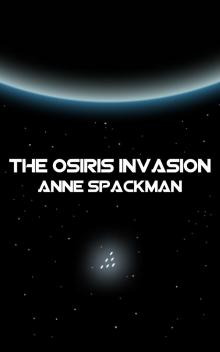 The Osiris Invasion: Book Two of Seeds of a Fallen Empire
The Osiris Invasion: Book Two of Seeds of a Fallen Empire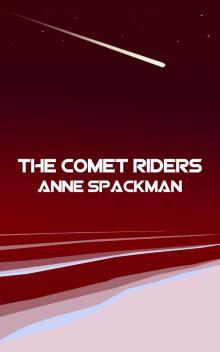 The Comet Riders: Book Five of Seeds of a Fallen Empire
The Comet Riders: Book Five of Seeds of a Fallen Empire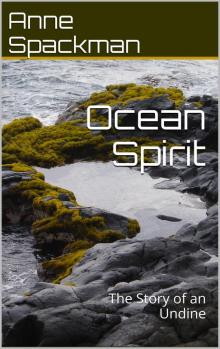 Ocean Spirit : The Story of an Undine
Ocean Spirit : The Story of an Undine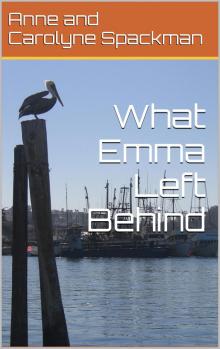 What Emma Left Behind
What Emma Left Behind The Book of Bird and Fairy Stories
The Book of Bird and Fairy Stories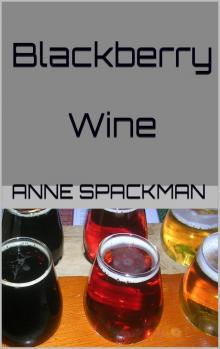 Blackberry Wine
Blackberry Wine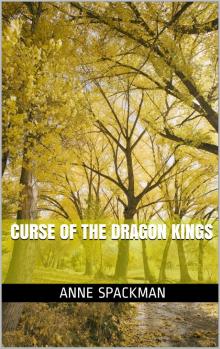 Curse of the Dragon Kings
Curse of the Dragon Kings